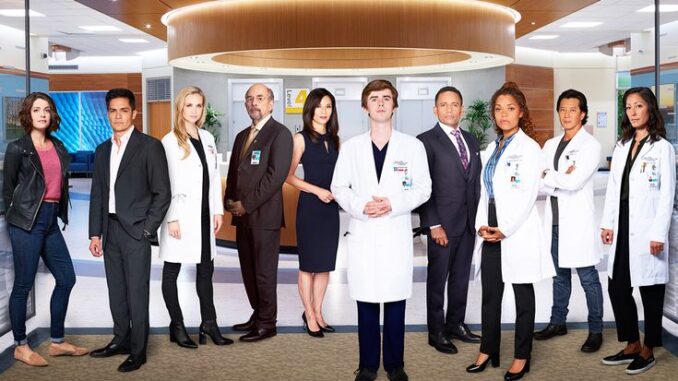
When The Good Doctor first introduced Dr. Shaun Murphy, audiences met a young surgeon with extraordinary intellect but limited social skills, a man more comfortable diagnosing complex conditions than navigating human interaction. Yet, over seven seasons, Shaun evolved from a misunderstood prodigy into a confident leader and mentor — a transformation that became one of the show’s most inspiring arcs. Through Freddie Highmore’s deeply empathetic performance, Shaun’s growth symbolized not only personal triumph but also a broader redefinition of what leadership looks like in modern television.
Shaun’s early days at St. Bonaventure Hospital were marked by skepticism. His autism and savant syndrome made him a medical marvel but also a target of bias. Supervisors doubted his communication abilities, colleagues questioned his bedside manner, and patients often misunderstood his intentions. However, Shaun’s persistence, guided by his mentor Dr. Aaron Glassman (Richard Schiff), allowed him to prove that brilliance comes in many forms. His analytical mind and keen observation skills saved countless lives — but what truly set him apart was his growing ability to connect with others, even when words failed him.
As the series progressed, Shaun’s transformation from student to teacher became one of its most powerful storylines. By Season 6, he had earned the title of attending surgeon, taking on residents of his own — an experience that mirrored his earlier struggles. His interactions with the next generation of doctors, including Dr. Asher Wolke and Dr. Jordan Allen, revealed how much he had grown. Where he once struggled to interpret social cues, Shaun began to recognize and nurture the potential in others, often using unconventional methods rooted in empathy and honesty.
One of the most memorable turning points came when Shaun faced the challenge of balancing mentorship with authority. His perfectionism and literal thinking sometimes clashed with the realities of leadership. Yet, each mistake became a learning opportunity — not just for his residents, but for him as well. In these moments, Freddie Highmore brought a quiet dignity to Shaun’s evolution, portraying leadership not as dominance, but as compassion, patience, and courage.
His relationship with Dr. Glassman also reflected this growth. The once one-sided mentorship evolved into mutual respect, as Shaun began offering the same guidance and emotional support he once received. This role reversal was subtle but profound — a testament to how far he had come, both as a doctor and as a person capable of emotional intelligence.
By the later seasons, Shaun’s voice — once uncertain and tentative — carried authority. Whether advocating for a patient, defending his colleagues, or standing firm in the operating room, he commanded attention through integrity rather than volume. His journey from surgical genius to mentor illustrated that true leadership isn’t about perfection; it’s about authenticity and empathy.
In the end, Dr. Shaun Murphy’s evolution is a reminder that growth doesn’t mean changing who you are — it means understanding yourself deeply enough to guide others. In doing so, The Good Doctor not only gave television one of its most memorable medical minds but also one of its most inspiring teachers.
